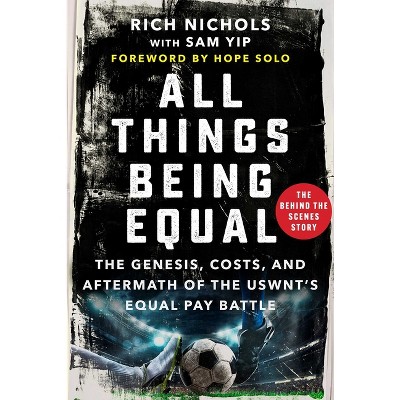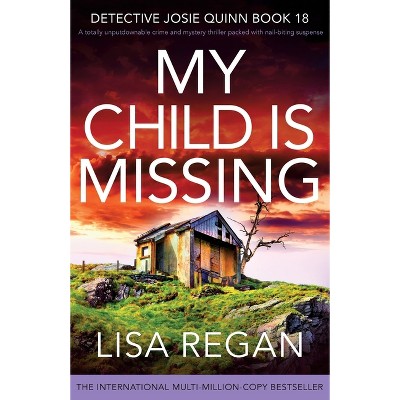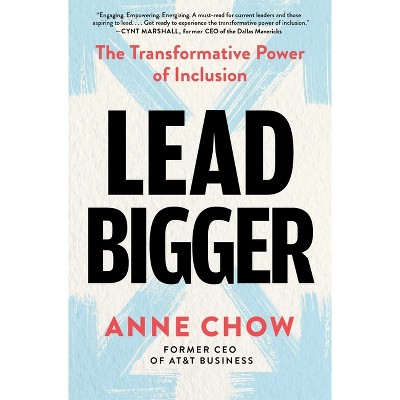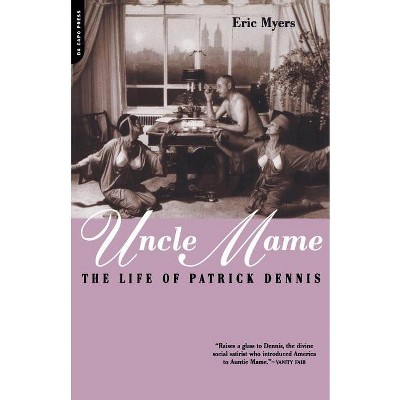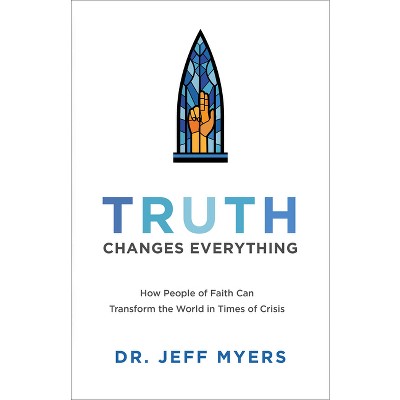Sponsored

Between Jew & Arab - by David N Myers (Paperback)
$27.95
In Stock
Eligible for registries and wish lists
Sponsored
About this item
Highlights
- This book brings new attention to Simon Rawidowicz (1897-1957), the wide-ranging Jewish thinker and scholar who taught at Brandeis University in the 1950s.
- About the Author: DAVID N. MYERS is professor of History and Director of the UCLA Center for Jewish Studies.
- 320 Pages
- Social Science, Jewish Studies
Description
About the Book
An exploration of the fascinating Jewish thinker Simon Rawidowicz and his provocative views on Arab refugees and the fate of IsraelBook Synopsis
This book brings new attention to Simon Rawidowicz (1897-1957), the wide-ranging Jewish thinker and scholar who taught at Brandeis University in the 1950s. At the heart of Myers' book is a chapter that Rawidowicz wrote as a coda to his Hebrew tome Babylon and Jerusalem (1957) but never published. In it, Rawidowicz shifted his decades-long preoccupation with the "Jewish Question" to what he called the "Arab Question." Asserting that the "Arab Question" had become a most urgent political and moral matter for Jews after 1948, Rawidowicz called for an end to discrimination against Arabs resident in Israel--and more provocatively, for the repatriation of Arab refugees from 1948. Myers' book is divided into two main sections. Part I introduces the life and intellectual development of Rawidowicz. It traces the evolution of his thinking about the "Jewish Question," namely, the status of Jews as a national minority in the Diaspora. Part II concentrates on the shift occasioned by the creation of the State of Israel, when Jews assumed political sovereignty and entered into a new relationship with the native Arab population. Myers analyzes the structure, content, and context of Rawidowicz's unpublished chapter on the "Arab Question," paying particular attention to Rawidowicz's calls for an end to discrimination against Arabs in Israel, on the one hand, and for the repatriation of those refugees who left Palestine in 1948, on the other. The volume also includes a full English translation of "Between Jew and Arab," a timeline of significant events, and an appendix of official legal documents from Israel and the international community pertaining to the conflict.Review Quotes
"In David Myers's compelling book, Between Jew and Arab, he probingly and refreshingly asks us to confront [these questions]: Is Israel a democratic state? Is it a Jewish state? Can it be both Jewish and democratic? . . . For presenting and elaborating on [Rawidowicz's conclusions], and the ensuing conception it articulates of the task of Jewish studies, David Myers -- one of the most distinguished Jewish historians writing today, and an institutional force to be reckoned with -- is to be lauded and commended." --AJS Review
"Myers demonstrates his virtuosity at intellectual history as he creates a marvelous context for us to understand this major thinker. He traces Rawidowicz's birth in Grayewo, Poland, the son of Rabbi Chayin Yitzhak Rawidowicz -- a merchant scholar, ardent Hebraist and Zionist -- and young Simon's early education and the impact of his father in shaping the mind of this most promising of students. He follows the family in their migration to Bialystok in 1914 and then journeys with Simon to Berlin, which, before the rise of Nazism was the cultural destination of brilliant Jews who had left the world of the yeshiva to be trained in universities and seminaries. . . . Anyone who has read Myers' earlier work will be rewarded by the intelligibility, the lucidity of his writing. He clarifies even the most complex ideas and finds no need to demonstrate the subtlety of his learning and intellectual talent by obfuscation."--The Jewish Journal
"Myers has unearthed and celebrated the unpublished work of an obscure and lonely thinker whose ethical thought was, as he himself acknowledges, both lacking in solid foundations and rather unrealistic. He nevertheless believes that Rawidowicz's writings can serve as a wake-up call reminding the supporters of the Jewish state of their moral duties"--Jewish Review of Books
"This book is important not only because it gives voice to a Jewish scholar steeped in tradition whose jeremiad against Israel and 'statist' Zionism was unheard; it is arresting because one can perhaps too easily draw a line connecting Rawidowicz's critique and his fears in the early 1950s to the reality of the conflict in 2009. That is, from reading Rawidowicz, and Myers's excellent assessment of him, one can surmise that the moral crisis in Israel is not the result of the war in 1967 or the intifadas in 1987 and 2000. Instead, the crisis begins in 1948, with Israel refusing to offer protection to the Arab refugees, most of whom were innocent victims of a bloody war, and then making it unreasonably difficult for those who remained to acquire citizenship in a new Jewish state that was envisioned by its architects as a model for tolerance. "True, today an open-door policy of repatriating Arab refugees and their families might threaten the 'Jewish' character of the state (which Rawidowicz wanted to protect). But in 1948 that was not the case, and many at that time knew it. And now, when historians such as Benny Morris have provided evidence to undermine the Israeli myth that Arabs left Palestine primarily on the advice of their leaders (Rawidowicz and others knew this myth was untrue in the early 1950s), we Jews have much to account for...We owe David Myers a debt of gratitude for giving us Simon Rawidowicz's lost voice: a voice of reason, of tradition, of morality, especially at a time when we need to be brought back to our collective senses."--The Forward
In David Myers's compelling book, Between Jew and Arab, he probingly and refreshingly asks us to confront [these questions]: Is Israel a democratic state? Is it a Jewish state? Can it be both Jewish and democratic? . . . For presenting and elaborating on [Rawidowicz's conclusions], and the ensuing conception it articulates of the task of Jewish studies, David Myers one of the most distinguished Jewish historians writing today, and an institutional force to be reckoned with is to be lauded and commended. AJS Review"
Myers demonstrates his virtuosity at intellectual history as he creates a marvelous context for us to understand this major thinker. He traces Rawidowicz's birth in Grayewo, Poland, the son of Rabbi Chayin Yitzhak Rawidowicz -- a merchant scholar, ardent Hebraist and Zionist -- and young Simon's early education and the impact of his father in shaping the mind of this most promising of students. He follows the family in their migration to Bialystok in 1914 and then journeys with Simon to Berlin, which, before the rise of Nazism was the cultural destination of brilliant Jews who had left the world of the yeshiva to be trained in universities and seminaries. . . . Anyone who has read Myers' earlier work will be rewarded by the intelligibility, the lucidity of his writing. He clarifies even the most complex ideas and finds no need to demonstrate the subtlety of his learning and intellectual talent by obfuscation. The Jewish Journal"
Myers has unearthed and celebrated the unpublished work of an obscure and lonely thinker whose ethical thought was, as he himself acknowledges, both lacking in solid foundations and rather unrealistic. He nevertheless believes that Rawidowicz s writings can serve as a wake-up call reminding the supporters of the Jewish state of their moral duties Jewish Review of Books"
This book is important not only because it gives voice to a Jewish scholar steeped in tradition whose jeremiad against Israel and statist Zionism was unheard; it is arresting because one can perhaps too easily draw a line connecting Rawidowicz's critique and his fears in the early 1950s to the reality of the conflict in 2009. That is, from reading Rawidowicz, and Myers's excellent assessment of him, one can surmise that the moral crisis in Israel is not the result of the war in 1967 or the intifadas in 1987 and 2000. Instead, the crisis begins in 1948, with Israel refusing to offer protection to the Arab refugees, most of whom were innocent victims of a bloody war, and then making it unreasonably difficult for those who remained to acquire citizenship in a new Jewish state that was envisioned by its architects as a model for tolerance. True, today an open-door policy of repatriating Arab refugees and their families might threaten the Jewish character of the state (which Rawidowicz wanted to protect). But in 1948 that was not the case, and many at that time knew it. And now, when historians such as Benny Morris have provided evidence to undermine the Israeli myth that Arabs left Palestine primarily on the advice of their leaders (Rawidowicz and others knew this myth was untrue in the early 1950s), we Jews have much to account for We owe David Myers a debt of gratitude for giving us Simon Rawidowicz's lost voice: a voice of reason, of tradition, of morality, especially at a time when we need to be brought back to our collective senses. The Forward"
AJS Review"
Jewish Review of Books"
The Jewish Journal"
About the Author
DAVID N. MYERS is professor of History and Director of the UCLA Center for Jewish Studies. He is the author of Re-Inventing the Jewish Past (1995) and Resisting History (2003).Dimensions (Overall): 7.9 Inches (H) x 5.52 Inches (W) x .81 Inches (D)
Weight: 1.04 Pounds
Suggested Age: 22 Years and Up
Number of Pages: 320
Genre: Social Science
Sub-Genre: Jewish Studies
Publisher: Brandeis University Press
Format: Paperback
Author: David N Myers
Language: English
Street Date: December 1, 2009
TCIN: 1006091950
UPC: 9781584658542
Item Number (DPCI): 247-25-4132
Origin: Made in the USA or Imported
If the item details aren’t accurate or complete, we want to know about it.
Shipping details
Estimated ship dimensions: 0.81 inches length x 5.52 inches width x 7.9 inches height
Estimated ship weight: 1.04 pounds
We regret that this item cannot be shipped to PO Boxes.
This item cannot be shipped to the following locations: American Samoa (see also separate entry under AS), Guam (see also separate entry under GU), Northern Mariana Islands, Puerto Rico (see also separate entry under PR), United States Minor Outlying Islands, Virgin Islands, U.S., APO/FPO
Return details
This item can be returned to any Target store or Target.com.
This item must be returned within 90 days of the date it was purchased in store, shipped, delivered by a Shipt shopper, or made ready for pickup.
See the return policy for complete information.
Frequently bought together
Trending Non-Fiction

$15.68
Save $5 when you spend $25 on select books
4.6 out of 5 stars with 246 ratings


Highly rated
$18.28
was $19.58 New lower price
Save $5 when you spend $25 on select books
4.8 out of 5 stars with 23 ratings
